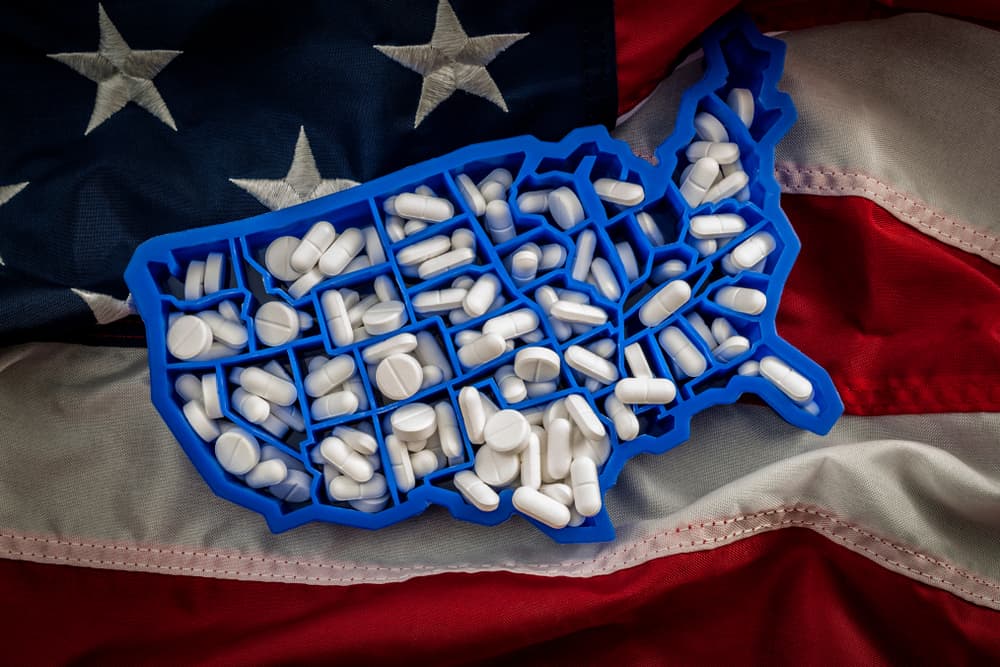Driving Under the Influence: Can I Be Charged for Prescription Drugs in Missouri? Gone are the days when a police officer would simply ask you to say the alphabet backward to determine if you were impaired. Today, if you are pulled over on suspicion of driving under the influence, officers have numerous ways to detect substances in your system. These include breathalyzer tests, urine samples, saliva tests, and blood tests.
Many people assume that DWI laws only apply to alcohol, but that is not the case. In Missouri, you can be charged with a DWI for prescription drugs, even if they were legally prescribed and taken as directed. If a medication impairs your ability to drive safely, you could face the same penalties as someone caught driving under the influence of alcohol or illegal drugs.
Anyone who takes medication regularly needs to understand how Missouri law applies to prescription drug DWIs. Below, we explain when and how you can be charged, what substances could lead to a DWI, and what to do if you are pulled over.

Free book
Don’t “Blow” Your DWI/DUI Case: Key Mistakes to Avoid
Combs Waterkotte, Missouri and Southern Illinois’s leading DWI/DUI law firm, has handled over 10,000 cases successfully. This ebook guides you through the DWI/DUI defense process and helps you avoid key mistakes.
Missouri Law: Can Prescription Drugs Lead to a DWI?
Yes, Missouri law makes it clear that you can face DWI charges for driving under the influence of prescription drugs. Under Missouri Revised Statutes §577.010, a person commits the offense of driving while intoxicated (DWI) if they operate a motor vehicle while in an “intoxicated condition.”
Under Chapter 577’s definitions, an “intoxicated condition” is when someone is under the influence of “alcohol, a controlled substance, drug, or any combination” of them. In this case, “drugs” refers to prescription medications. If a drug impairs your ability to operate a vehicle safely, you may be charged with a DWI.
This is commonly referred to as “DUI-D” (driving under the influence of drugs), but Missouri Law refers to all offenses, either alcohol or drugs, simply as “DWI” (driving while intoxicated).
Unlike alcohol-related DWIs, which are measured by blood alcohol concentration (BAC), prescription drug impairment is more subjective. Officers must rely on observed behavior, field sobriety tests, and, in some cases, drug recognition experts (DREs) to determine impairment.
It is important to note that having a valid prescription is not a defense. If a medication affects your ability to drive, you can still be arrested and charged with a DWI.
What Prescription Drugs Can Get You a DWI in Missouri?
Missouri law does not list specific prescription drugs that can lead to a DWI charge. However, any medication that impairs alertness, coordination, reaction time, or judgment can result in a DWI. Common categories of prescription drugs that may cause impairment include:
- Opioids – Pain relievers such as oxycodone, hydrocodone, and morphine can cause drowsiness and slow reaction times.
- Benzodiazepines – Medications like Valium, Xanax, and Ativan are prescribed for anxiety and sleep disorders but can cause dizziness and confusion.
- Sleeping Aids – Ambien, Lunesta, and similar medications can leave users disoriented or sluggish, even the next morning.
- Muscle Relaxants – Drugs like Soma and Flexeril can impair motor function and coordination.
- Antidepressants – Certain antidepressants, especially sedating ones, can slow reaction times and cause drowsiness.
- Antihistamines – Common cold and allergy medications, such as Benadryl, can cause significant drowsiness and impair reflexes.
- Medical Marijuana – While legal for medical use in Missouri, it is still illegal to drive under the influence of marijuana.
Even if you feel normal while taking a medication, your body may react differently in different situations. A combination of medications, a higher-than-normal dose, or even a lack of sleep can increase the risk of impairment.
If you take any prescription medication that comes with a warning about operating heavy machinery, it is best to assume that you should not drive while taking it.
What Are the Penalties for a Prescription Drug DWI in Missouri?
In Missouri, a DWI involving prescription drugs carries the same penalties as an alcohol-related DWI. If convicted, you could face severe consequences that impact your freedom, finances, and driving record.
First-Offense Prescription Drug DWI Penalties:
- Up to 6 months in jail
- Fines up to $500
- 8 points added to your driving record
- Possible 90-day license suspension, which after 30 days can be reduces to a restricted driving privilege (RDP)
- Mandatory completion of a substance abuse program
Second and Subsequent Offenses:
- Longer jail sentences
- Higher fines
- Long-term license suspension or revocation
- Potential felony charges
Missouri law does not differentiate between alcohol and drug-related DWIs when it comes to punishment. If convicted, you could face long-term consequences, including higher insurance rates, difficulty finding employment, and a permanent criminal record.
Can I Refuse a Drug Test if I’m Pulled Over?
Under Missouri’s Implied Consent Law (Section 577.020), you automatically consent to a chemical test (blood, urine, or saliva) when you operate a vehicle on public roads.
What happens if you refuse a drug test? If you don’t challenge the suspension (more on that below), consequences could include:
- 1-year license suspension (Chemical Revocation)
- Your refusal can be used against you in court
- Officers may still charge you based on observed impairment
It’s important to note: The officer will likely say you will automatically lose your license if you refuse, but that isn’t the case. Because of how importance a license is to our daily lives, you have 15 days to request an administrative hearing after refusing a chemical test and being notified of your license suspension. Combs Waterkotte’s DWI/DUI lawyers recommend refusing the chemical test and challenging the suspension in court.
For more information on chemical tests and refusing them, check out two chapters of our free ebook, “Don’t “Blow” Your DWI/DUI Case: Key Mistakes to Avoid:
Can a Prescription Drug DWI Be Expunged from My Record?
Expungement removes a criminal conviction from your record, but in Missouri, it is only available for limited DWI cases. Under Missouri Revised Statutes §610.140, you may be eligible for expungement if:
- The DWI was your first and only offense
- At least 10 years have passed since your conviction
- You have had no additional alcohol- or drug-related driving offenses
If you do not meet these criteria, the DWI will remain on your record permanently. This can impact employment opportunities, professional licensing, and insurance costs.
Because prescription drug DWIs carry the same penalties as alcohol-related DWIs, expungement is difficult. If you are facing charges, it is crucial to fight them aggressively rather than rely on the possibility of expungement later.
How to Avoid a Prescription Drug DWI in St. Louis
If you take prescription medication, you can take steps to ensure you do not unintentionally put yourself at risk of a DWI charge.
- Read medication labels carefully – Follow any warnings about operating heavy machinery or driving.
- Be aware of side effects – If your medication causes drowsiness, dizziness, or impaired coordination, do not drive.
- Consult your doctor or pharmacist – Ask if an alternative medication with fewer side effects is available.
- Never mix medications or take more than prescribed – Combining medications or exceeding your dosage increases the risk of impairment.
- If unsure, find another way to travel – Use a rideshare service, public transportation, or ask a friend to drive.
Taking these precautions can help you avoid a prescription drug DWI charge and ensure you drive safely.
If You’re Facing a Prescription Drug DWI, Call a St. Louis DW/DUI Lawyer Now
A prescription drug DWI carries serious consequences, and defending yourself alone is risky. Let Combs Waterkotte fight for you.
Contact us today or call (314) 900-HELP for a free consultation. We are available 24/7 to help.







